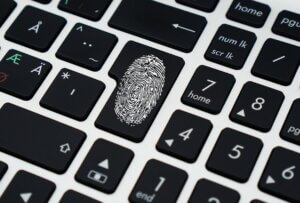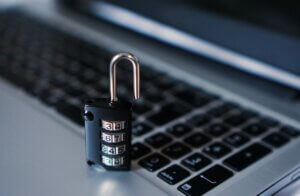
More password security: This is why pet names as passwords are not a good idea
Whether on social media, for online shopping or banking; passwords serve as protection for accounts with sometimes very important data, rights and functions. Therefore, password security has always been an important matter that should not be taken lightly. But people are comfortable by nature and this is probably also one of the main reasons why there are still cases where pet names are used as passwords.
ust like birth dates, street names or your favourite team, pet names are of course also not a secure password. For this reason, we want to help you achieve more password security with this short article and explain to you what makes a secure password and what does not. – But enough of the preface; now we’ll start with the article and hope you enjoy reading it!
 Pet names as passwords are not a good idea and therefore do not provide a sufficiently high level of protection for your sensitive data on the Internet.
Pet names as passwords are not a good idea and therefore do not provide a sufficiently high level of protection for your sensitive data on the Internet.
The most important basic rules for creating a password
If you want to create a secure password, there are a few rules to follow. In addition to lower-case letters (a, b, c) and upper-case letters (A, B, C), you should also use numbers (1, 2, 3) and special characters (!, ?, $). When compiling secure passwords, make sure that they do not include terms associated with you (such as pet names, friends, streets, schools, etc.) or sequences of numbers (such as birth dates, anniversaries, postcodes, etc.).
It is best to choose unrelated sequences of different characters that are not to be found in the dictionary. Therefore, do not simply append numbers or special characters to a term that you like, but use something completely new. In addition, the longer your password, the more secure it is. However, a secure password should be at least eight characters long. Finally, you should make sure to use a different password for each account. A different password should not only be characterised by the modification of a single character.
 Be sure to follow the most important basics if you want to create a secure password and really protect your sensitive data on the Internet.
Be sure to follow the most important basics if you want to create a secure password and really protect your sensitive data on the Internet.
How am I supposed to remember all those complicated passwords?!
Saving passwords digitally in a Word or Excel document makes sense from the point of view of convenience, but not from the point of view of security. Because then all passwords can be stolen in the event of theft. Of course, the same applies to writing down passwords in a physical notebook, but the probability of theft is much lower. However, you then have to carry it around with you whenever you want to log in somewhere.
For this reason, it is advisable to use a digital password manager. These are tools in which you store all your access data and which are very well encrypted and secured. In addition, most password managers use a very secure method of two-factor authentication with the help of a key file. This means that all your passwords are stored in one place and can be retrieved at any time, but are still very well protected.

 Pet names as passwords are not a good idea and therefore do not provide a sufficiently high level of protection for your sensitive data on the Internet.
Pet names as passwords are not a good idea and therefore do not provide a sufficiently high level of protection for your sensitive data on the Internet. Be sure to follow the most important basics if you want to create a secure password and really protect your sensitive data on the Internet.
Be sure to follow the most important basics if you want to create a secure password and really protect your sensitive data on the Internet. Digital password managers are like a TSA or universal key that can be used to open various luggage locks at the airport, except that only you have this key.
Digital password managers are like a TSA or universal key that can be used to open various luggage locks at the airport, except that only you have this key.